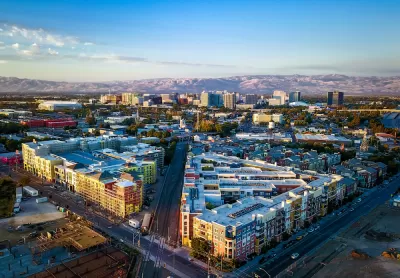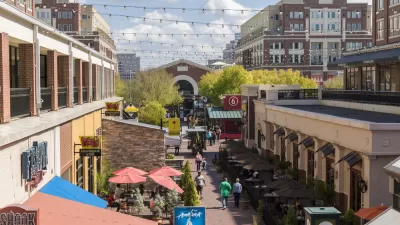The city of San Jose will charge developers a fee to help fund affordable housing projects in the city. But critics say the fees are insignificant compared to the scale of the need.

The San Jose City Council voted this week to impose a linkage fee for commercial developers that will help fund affordable housing projects, reports Maggie Angst.
"Under the new fee structure, developers of downtown office buildings more than 100,000 square feet will have three payment options: paying $12 per square foot upon the certificate of occupancy, $15 per square foot in phases or no fee if the developer agrees to build a certain number of affordable housing units equivalent to the applicable fee," explains Angst.
The 7-4 council vote came after years of debate and skyrocketing housing costs in the most populous city in the Bay Area. The four dissenting voters on the council opposed the fee because they believed the fee isn't high enough to make a significant impact on the problem it is intended to address. The fee is expected to generate $14 million a year for affordable housing in the city.
Angst's coverage presents the housing affordability challenges in the city as the fault of tech companies in the area. Google parent company Alphabet has been aggressively buying up property and expanding around the city, for example, only recently pausing in this effort during the economic uncertainty of the pandemic.
"As developers and tech companies, such as Mountain-View based Google, are pouring more money into San Jose than ever before, longtime residents are getting pushed out of the area due to rising rents and a crippling shortage of affordable housing units," writes Angst.
FULL STORY: San Jose passes new fees on commercial development to fund affordable housing

Planetizen Federal Action Tracker
A weekly monitor of how Trump’s orders and actions are impacting planners and planning in America.

Maui's Vacation Rental Debate Turns Ugly
Verbal attacks, misinformation campaigns and fistfights plague a high-stakes debate to convert thousands of vacation rentals into long-term housing.

Restaurant Patios Were a Pandemic Win — Why Were They so Hard to Keep?
Social distancing requirements and changes in travel patterns prompted cities to pilot new uses for street and sidewalk space. Then it got complicated.

In California Battle of Housing vs. Environment, Housing Just Won
A new state law significantly limits the power of CEQA, an environmental review law that served as a powerful tool for blocking new development.

Boulder Eliminates Parking Minimums Citywide
Officials estimate the cost of building a single underground parking space at up to $100,000.

Orange County, Florida Adopts Largest US “Sprawl Repair” Code
The ‘Orange Code’ seeks to rectify decades of sprawl-inducing, car-oriented development.
Urban Design for Planners 1: Software Tools
This six-course series explores essential urban design concepts using open source software and equips planners with the tools they need to participate fully in the urban design process.
Planning for Universal Design
Learn the tools for implementing Universal Design in planning regulations.
Heyer Gruel & Associates PA
JM Goldson LLC
Custer County Colorado
City of Camden Redevelopment Agency
City of Astoria
Transportation Research & Education Center (TREC) at Portland State University
Jefferson Parish Government
Camden Redevelopment Agency
City of Claremont





























